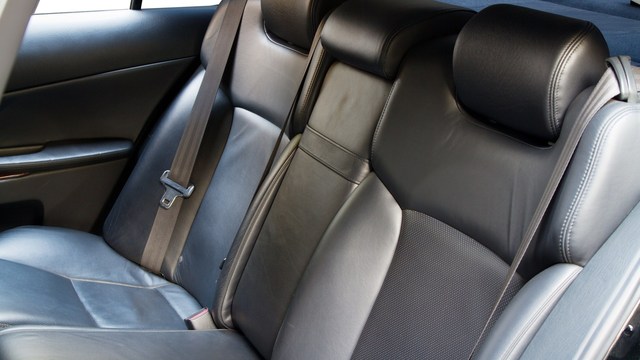 George Dolgikh/PhotoSpin
George Dolgikh/PhotoSpin
The United States is commemorating National Heat Stroke Prevention Day on July 31, 2014. One of the most deadly scenarios for heat stroke occurs when children are left alone in a car with the windows closed on a hot summer day.
When a child dies in a hot car, it highlights the tragedy of heat stroke and the risk associated with leaving children alone in a car, especially in warm weather.
5 Heat Stroke Facts
1) Since 1998, an average of 38 children die in hot cars every year in the United States. That means, as of July 2, 2014, 619 children have died from heat stroke in vehicles in this country during that time.
2) Younger children are more susceptible to heat stroke death in a hot car. Over 70 percent of heat stroke deaths happen in children under two years of age.
3) Forgetfulness is the main reason that children have been left to die in hot cars. Over half of heat stroke deaths happen simply because a child was forgotten in a car by the caregiver.
About 30 percent of these deaths happen because the child got into a car without the caregiver knowing and wasn't able to get out. Almost 20 percent of these deaths are because the child was intentionally left in the car.
4) Children should never be left unattended in a car. Cars can heat up 20 degrees in only 10 minutes. And even if the outside temperature isn't extremely high, the temperature inside a car that is left in the sun can increase exponentially.
If it is in the 60s outside, a car can reach up to 110 degrees! Heat stroke can take place when the outside temperature is as low as 57 degrees.
5) A child's body temperature can increase up to five times faster than adult's. A person is susceptible to heat stroke with a body temperature that surpasses 104 degrees. When the body temperature reaches 107, it can be deadly.
The National Highway Traffic Safety Administration (NHTSA), Ford Motor Company, along with state and other safety partners, have started a campaign to protect children inside of vehicles, especially in the hot summer months. On safercar.gov, these experts have outlined tips to keep kids safe.
5 Tips To Help Keep Kids Safe
1) Do not leave infants or children unattended in a parked car, even if the windows are open.
2) Test the car seat and car seat belt buckles to make sure they are not too hot before securing a child in the restraint system.
3) Everyone should take action if they see a child left alone in a car. Many states have laws that protect such "good Samaritans."
4) Always look before locking! Check both the front and back seats of the car before locking it and walking away.
5) Cars should always be locked when not in use so children cannot get in without an adult.
Sources:
Safercar.gov. Web. 30 July 2014. "Heatstroke."
http://www.safercar.gov/parents/heatstroke.htm
USAToday.com. Web. 2 July 2014. "Child deaths in hot cars: 10 key facts".
http://www.usatoday.com/story/news/nation-now/2014/07/02/child-deaths-hot-cars-facts/12055727
Reviewed July 31, 2014
by Michele Blacksberg RN
Edited by Jody Smith






Add a Comment3 Comments
Piece with a different perspective --
August 12, 2014 - 9:31amThe Summer of Forgotten Babies
http://themintyplum.com/?p=2159
This Comment
Please sign our petition requiring carmakers to install Driver Reminder Systems in all vehicles so that no more children are forgotten and left behind in cars. Visit kidandcars.org and forgetmenotusa.com for more information. http://www.thepetitionsite.com/1/mandatory-child-sensor-alert-systems-for-all-new-vehilces/
August 5, 2014 - 3:00pmThis Comment
sorry, it's kidsandcars.org.
August 5, 2014 - 3:02pmThis Comment